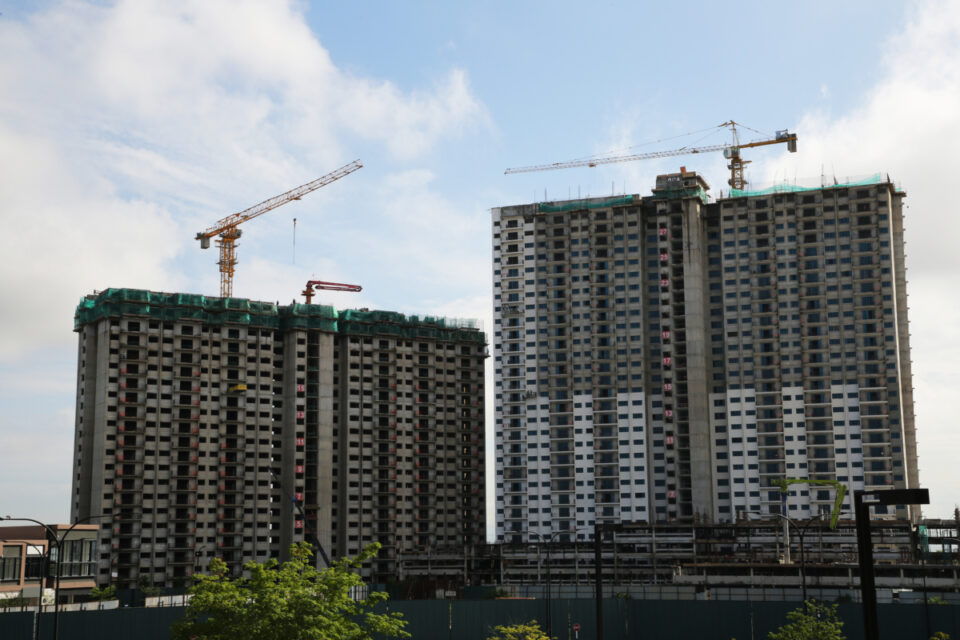PETALING JAYA, March 21 — As many as 125,000 people nationwide have been indirectly affected by housing projects that are sick or abandoned, said Local Government Development Deputy Minister Akmal Nasrullah Mohd Nasir.
He said the Local Government Development Ministry (KPKT), through a special committee, has been working hard to help resolve the problems buyers and housing developers are facing by taking a more structured approach.
The deputy minister said the approach would be through data tracking, resolving, prevention and forward modelling selection to ensure the problems do not reoccur.
“I will be personally chairing this committee, where we want the monthly data (on the problems) to be dynamic, moving and with progress (towards solving the issues). For example, at the developer level, if there are issues with delays in approvals from local authorities, we will assist in expediting the process or feedback.
“This is to ensure the status of the projects does not deteriorate, which will result in the government being forced to interfere, something that we wish to avoid,” Akmal Nasrullah told the media after his keynote speech at the Rehda Institute Regional Housing Conference 2023 here, today.
He noted that developers are responsible for the projects, and the role of the government is to monitor them.
Akmal Nasrullah said as at January 31, 2023, more than 1,000 housing projects had encountered difficulties, including 437 sick projects and 115 abandoned projects.
A sick project is one that has been delayed by more than 30 per cent compared with its scheduled progress or one whose sale and purchase agreement has lapsed.
Meanwhile, Akmal Nasrullah said the government does not have plans to launch new products similar to Menu Rahmah apart from the Rumah Belia Madani launched last month that would be offered to youths.
He said this is because developing a housing initiative takes time to be evaluated and realised.
“There is no ‘quick menu’ that can be offered, and we cannot just come up with a suggestion suddenly because the (housing) industry is extensive and involves hundreds of stakeholders across the entire industry chain.
“However, through Budget 2023 tabled by the prime minister recently, the government has agreed to build 13 People’s Housing Projects (PPR), one for each state, which will be completed within three to four years, compared with the previous years where only three or four projects were completed,” Akmal Nasrullah explained.
Meanwhile, Real Estate and Housing Developers’ Association (Rehda) Institute chairman Datuk Jeffrey Ng Tiong Lip has called on the authorities to make radical transformations and changes in the delivery of social housing.
He called for the government to introduce a uniform framework of financial contributions from property developers in lieu of mandatory quota imposition and controlled pricing, as currently being practised using different models in different states.
“If such models can be uniformly streamlined, this would allow KPKT, with assistance from Rehda, to set up a centralised fund (funded by developers) to launch and deliver social housing projects with an economy of scale by the public sector, which can lead to lower construction cost if modern technologies were implemented,” he said.
Ng added that the implementation of a uniform framework for the financial contribution, in lieu of social housing, would allow greater transparency and consistency in cost management, leading to a more manageable housing process throughout the country.
Rehda also called for the government to address the issue of house price cross subsidisation, because when an affordable housing quota is given at a fixed price, the portion of the housing project not under the quota would be adjusted upwards in terms of pricing.
This price adjustment, Ng said, is to compensate for the losses that developers incurred for the affordable housing units.
“These are among the fundamental problems we are facing, and we are asking the government for a more progressive and sustainable system in the real estate sector,” he said.
Rehda Institute also signed a memorandum of understanding with Bank Pembangunan Malaysia Bhd at the housing conference to enable both parties to undertake research collaborations spanning real estate and property development, housing policies, banking and finance, environmental, social and corporate governance (ESG) and smart cities development.
“We will put our skills and capabilities to see what are the possible new solutions, looking from the banking industry’s viewpoint, because we are correlated.
“We hope we can take it to the next level and come up with proposals and recommend to the government for adoption to make them (proposals) work,” he added.
— Bernama





